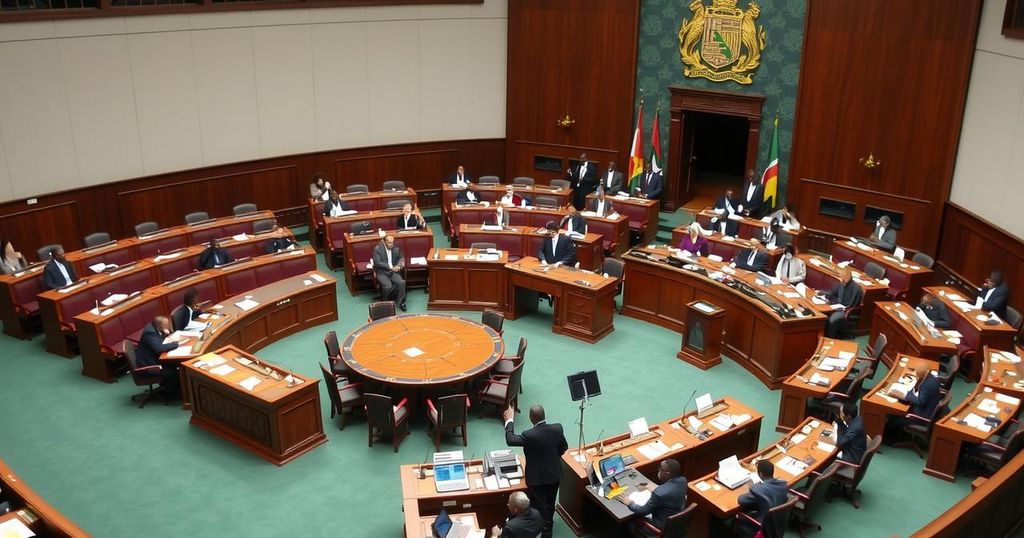Mozambique’s parliament inauguration follows an election mired in allegations of rigging, with opposition leader Mondlane claiming victory. Protests are planned against the new government amid unrest that has resulted in numerous deaths, raising concerns over governance and economic impacts.
Mozambique is preparing to inaugurate its new parliament on Monday amidst ongoing tensions following an election marred by allegations of manipulation. Opposition leader Venancio Mondlane has called for peaceful protests to commence on the same day, leading up to the presidential installation of Daniel Chapo. Mondlane asserts that he emerged victorious in the presidential race, despite official results favoring Chapo’s Frelimo party, which has retained power for half a century.
Two opposition parties, Renamo and MDM, have declared their intention to boycott the parliamentary session, with Renamo stating their actions reflect a profound disrespect for what they term the legitimate expression of the Mozambican populace during the electoral process. Renamo captured 28 seats, while MDM secured eight in the 250-seat assembly, where Frelimo won 171 seats and the Podemos party obtained 43.
Mondlane, who claims to have garnered 53 percent of the presidential votes, returned from over two months of exile recently, seeking to solidify his political claims. His return was marked by large-scale rallies, which unfortunately escalated into clashes with security forces, leading to several fatalities. He has subsequently called for a national strike, urging supporters to demonstrate against the alleged electoral fraud.
The recent civil unrest has raised serious concerns, with estimates indicating that around 300 lives have been lost since the election, attributed largely to excessive force deployed by security personnel. This turmoil has inflicted significant economic disruptions across Mozambique, severely impacting trade and key industries.
The political landscape in Mozambique has historically been dominated by the Frelimo party, which has maintained power since the country’s independence in 1975. Recent elections have sparked considerable controversy, particularly amid accusations of electoral fraud and manipulation. The opposition, primarily represented by Renamo and MDM, has faced substantial challenges in validating their claims and securing electoral integrity. The resultant protests and unrest not only signify a critical moment for Mozambican democracy but also highlight the broader implications of governance and public dissent in an evolving political context.
In conclusion, the upcoming inauguration of Mozambique’s new parliament occurs in a highly charged atmosphere of protest and discontent over alleged electoral fraud. The opposition’s refusal to participate highlights deep-seated issues regarding democratic legitimacy and respect for the electoral process. As calls for peaceful demonstrations resonate across the country, the unfolding events may significantly dictate the future political landscape and societal stability in Mozambique.
Original Source: www.voanews.com






